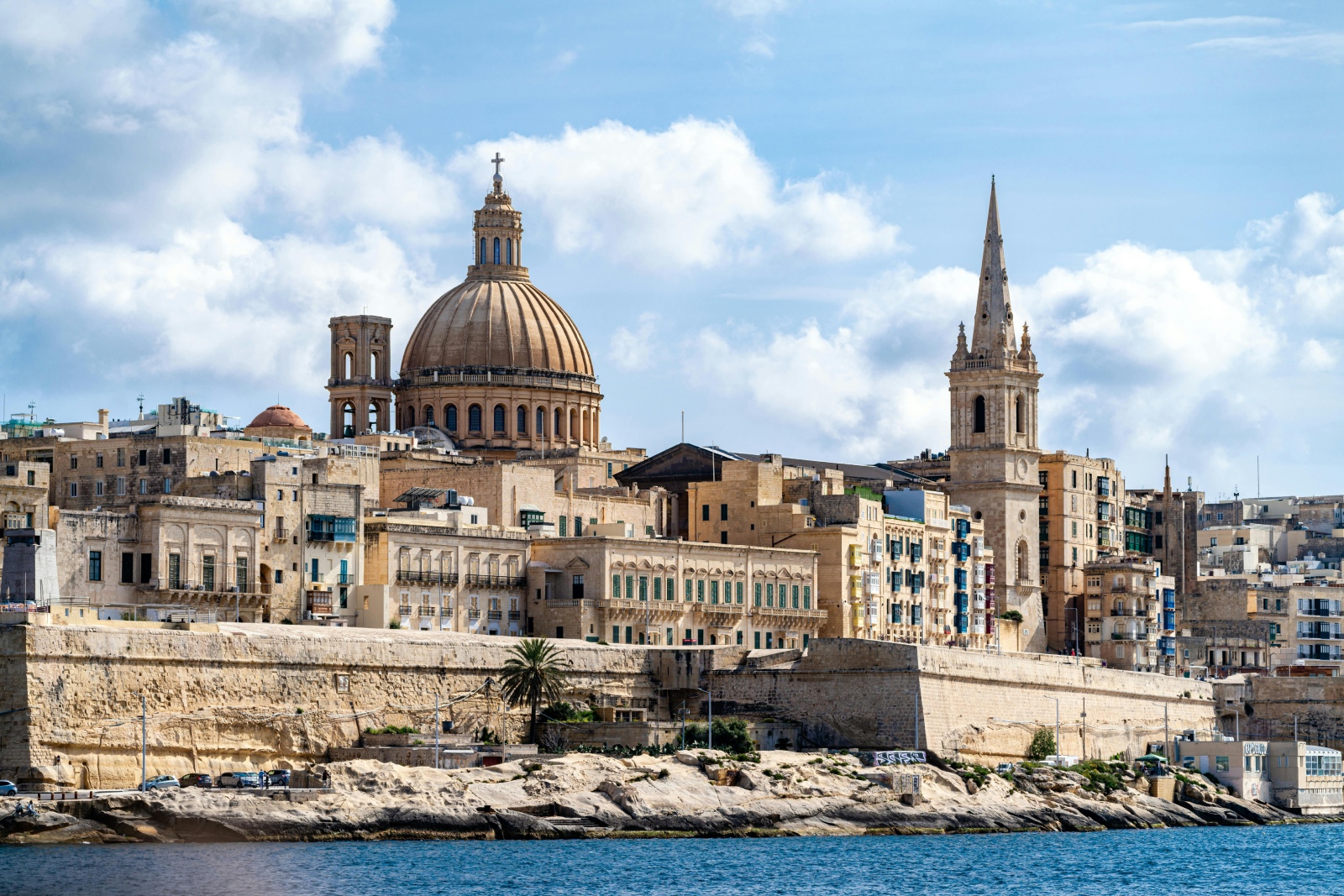Key takeaways
- Malta VAT rates: The standard VAT rate is 18%, with reduced rates of 12%, 7%, and 5%, plus a 0% rate for certain food, medicines, and transport services.
- Registration threshold: Businesses must register once turnover exceeds €35,000 for goods or €30,000 for services, with no threshold for non-resident businesses.
- Filing & penalties: VAT returns are filed quarterly, and late submissions or payments can result in daily fines or interest charges on unpaid amounts.
Expanding your business to Malta requires a comprehensive understanding of the local Value Added Tax (VAT) system. This guide offers a detailed overview of Malta's VAT regulations, encompassing aspects like rates, registration, returns, and more.
What is the Maltese VAT rate?
In Malta, VAT is known as It-taxxa fuq il-valur mizjud. Maltese VAT is structured with a standard rate and three reduced rates for specific goods and services. There is also a zero VAT rate.
Registering for VAT in Malta
Businesses based in Malta must register for VAT if their annual turnover exceeds the threshold of €35,000 for goods and €30,000 for services. There is no threshold for non-resident businesses.
An EU-wide threshold of €10,000 also applies for cross-border trade within EU member countries. Exceeding this limit mandates VAT registration in Malta, as does storing goods in the country or participating in fulfillment programs like Amazon's FBA (Fulfilled-by-Amazon).
To register for VAT, submit the necessary forms and documents to Malta's tax authority, the Commissioner for Revenue. The process typically takes between three to four weeks, after which a Malta VAT number will be assigned.
Fiscal Representative in Malta
Neither EU nor non-EU businesses selling in Malta are required to appoint a fiscal representative.
Maltese VAT return filing and penalties
All Malta VAT returns filings are quarterly and are due by the 15th of the second month following the quarter-end. They should be submitted electronically unless the business has ten employees or fewer, in which case the VAT return can be a paper filing.
The penalty for failing to submit a VAT return on time is €20 per day or 1% interest, whichever is higher. Late payment of VAT will incur a fine of 0.06% in interest per month.
Maltese Intrastat declarations
Both resident and non-resident businesses engaging in trade within the EU must submit Intrastat declarations. The thresholds for reporting are €700 for arrivals and €700 for dispatches. The deadline for Intrastat returns is the 10th of the month following the reporting period.
Reverse charge in Malta
The reverse charge mechanism in Malta shifts VAT reporting and payment responsibility from the supplier to the recipient in specific situations, including EU cross-border supplies and particular industries. In many circumstances, this mechanism removes the need for foreign suppliers to register for VAT in Malta.
Frequently asked questions
New Year's Day - 1/1/2024Memorial Day - 5/27/20244th of July - 7/4/2024Labor Day - 9/2/2024Thanksgiving Day - 11/28/2024Day after Thanksgiving - 11/29/2024Christmas Eve - 12/24/2024Christmas Day - 12/25/2024
What is the VAT rate in Malta?
Malta’s standard VAT rate is 18%, with reduced rates of 12% (for certain financial and health services), 7% (for hotel accommodation and sports facilities), and 5% (for electricity, books, medical equipment, and cultural events). A 0% rate applies to exports, medicines, and international transport.
When do I need to register for VAT in Malta?
Resident businesses must register once annual turnover exceeds €35,000 for goods or €30,000 for services. Non-resident businesses must register immediately upon conducting taxable activities. The EU distance selling threshold is €10,000.
How do I register for VAT in Malta?
VAT registration is done through the Commissioner for Revenue. The process takes around 3–4 weeks, after which you’ll receive your Malta VAT number.
Do foreign businesses need a fiscal representative in Malta?
No. Neither EU nor non-EU businesses are required to appoint a fiscal representative to operate or register for VAT in Malta.
How often must VAT returns be filed in Malta?
VAT returns are filed quarterly, due by the 15th of the second month following the quarter’s end. Returns are usually filed electronically, unless the business has 10 or fewer employees.
Are Intrastat declarations required in Malta?
Yes. Businesses trading goods within the EU must file Intrastat returns by the 10th of the following month once annual trade exceeds €700 for arrivals or €700 for dispatches.
















